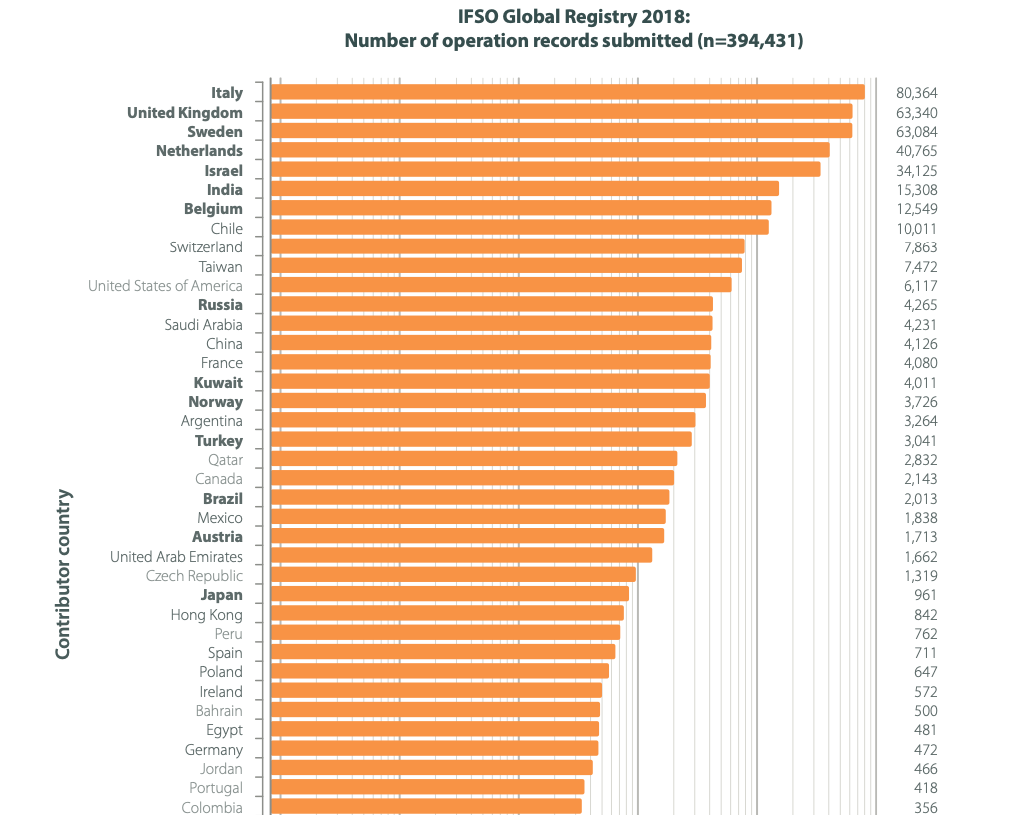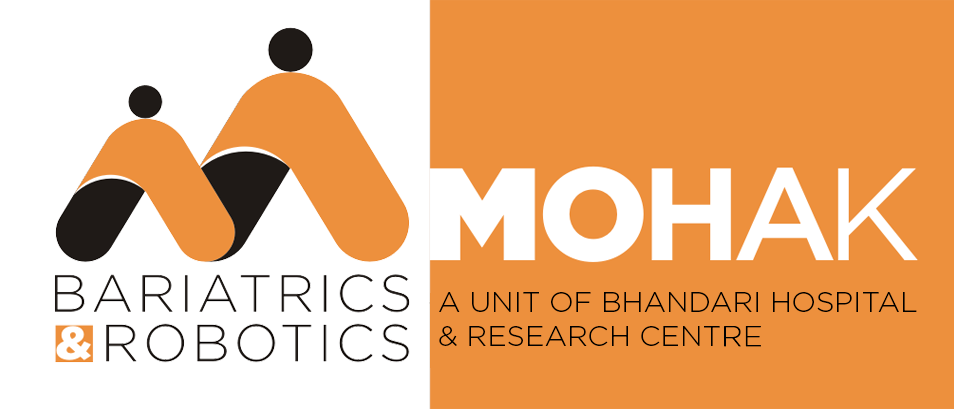Bariatric Surgery – A hope for Obese people
A weight loss surgery performed on an obese or overweight person to make the changes to his/ her metabolic system is called bariatric surgery. Roux-en-Y Gastric Bypass, Mini Gastric Bypass, Single Anastomosis Duodenal Ileal Switch, Single Incision Lap Sleeve, Sleeve Gastrectomy, Banded Gastric Bypass, and Duodenal Jejunal Bypass are the commonly done bariatric surgery procedures at Mohak Bariatrics & Robotics.
According to the statistics, there are more than 100 Bariatric Surgeries performed per day in India. It is growing at an exponential rate. In the Fourth IFSO Global Registry Report, India has been ranked on sixth position with 15,308 recorded Bariatric Surgery operations.
Objective
The prime objective of all these surgeries is to reduce weight by limiting your capacity to eat at one go giving you a sense of fullness with less intake of food. This helps in reducing the risk of potentially-life threatening weight-related health problems.
Who can undergo bariatric surgery?
Bariatric surgery is an option if you are severely obese and other weight loss methods like lifestyle changes and medication have failed to deliver long-term results.
- Obese people with body mass index (BMI) of 30 or higher can opt for bariatric surgery
- If your BMI is between 28 and 30 but you suffer from any of these health problems:
- Type 2 diabetes
- High blood pressure
- Heart disease
- Severe sleep apnea
- Gastroesophageal reflux disease
- Stroke
Mohak Bariatrics & Robotics is the best place to undergo the operation and regain your health. Led by Dr. Mohit Bhandari, Mohak Bariatrics & Robotics has been ranked no. 1 for the 5th time in a row in Times Health All India Lifestyle Hospital & Clinic Ranking Survey. It is a testament to the state-of-the-art technology deployed at the centre and the highly skilled multidisciplinary team that imparts top-class holistic care to the patients. Dr. Bhandari himself is the youngest surgeon to perform 15000+ bariatric surgeries as well as 1000+ robotic surgeries whose patients include a 350 kg woman and a 6-year-old boy.
Editors’ note: This post was originally published in December 2019 and has been updated for freshness, accuracy, and comprehensive.
